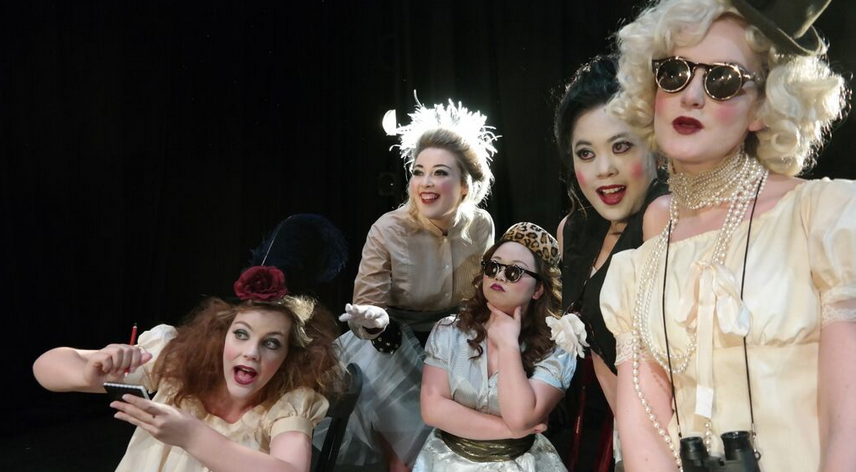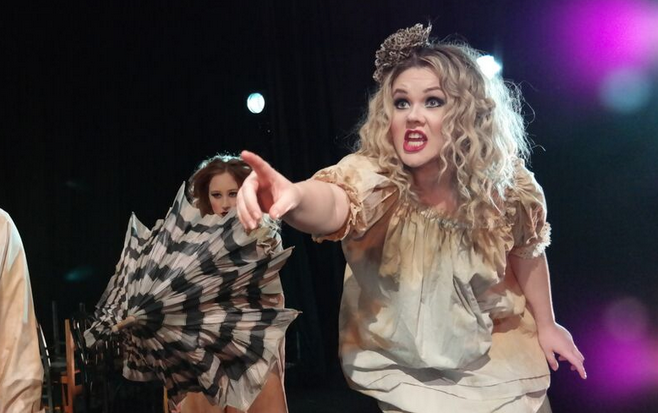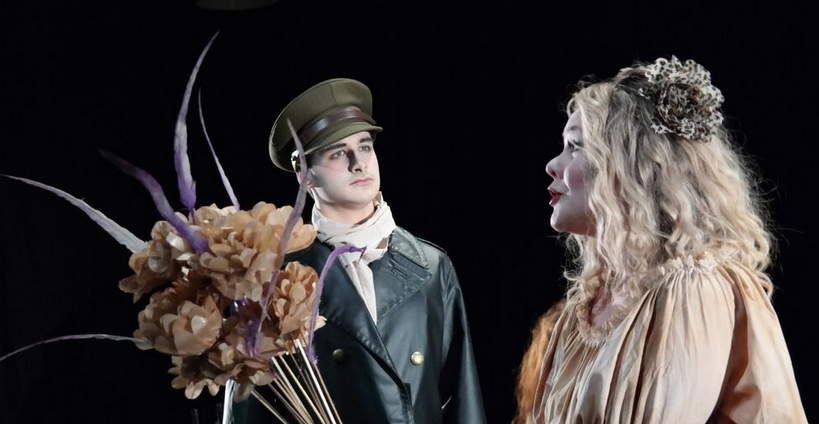★★★½☆ Williamson and Sitwell make strange, yet oddly perfect, bedfellows.
Music Workshop, Sydney Conservatorium of Music
October 16, 2015
This is just the sort of thing a music college ought to be doing. Malcolm Williamson’s second opera caused quite a stir when it debuted at Aldeburgh in 1964. The sometime-maverick Sydney-born composer was a man on the rise and had made important friendships leading many to see him as one of the great white hopes of tonal music in Britain, a close third to William Walton and the unassailable Benjamin Britten. For reasons unexplained, despite its success, Williamson’s take on Edith Sitwell’s exploration of the oddities of the English character was never published, just one of the reasons for its relative neglect over the years. I’d add to that a sizeable cast (despite potential for doubling) and an unconventional dramaturgical format lacking in narrative thrust at a time when opera was seen as almost exclusively a medium for musical story-telling. Well done then to Sydney Conservatorium of Music (Williamson’s old alma mater) for letting their opera students explore the work and giving an audience probably a once-in-a-lifetime chance to get a look at what turns out to be an intriguing and thoroughly engaging piece of music theatre.

Sitwell’s book is essentially a study of the kind of characters who in the18th-19th century would be considered ‘eccentric’ or ‘mad’ but nowadays would be either recommended for a weekly course of psychotherapy or given their own reality-TV show. The book includes people who never bathe, people who can’t bathe often enough, quacks, fantasists, fakes and fops. Some are comical, others sad or moving, all described in Sitwell’s distinctive prose. As an opera it’s a longish, two-act work divided into scenes focusing on a theme or a mini-narrative such as the sorry tale of an executed forger and his bereaved widow, the impending eviction of an ornamental hermit, or a country girl who takes it into her head to pretend to be a South Sea Island princess.
Williamson’s score could be described as a patchwork of pastiches designed to mirror the episodic nature of the libretto (cleverly fashioned from Sitwell’s book by the actor Geoffrey Dunn). Thus a Gilbert and Sullivan duet can rub shoulders with a Viennese waltz, which can butt up against a bit of a baroque send up. There are also wisps of 20th-century jazz and Weimar cabaret and just a little that you’d call distinctive Malcolm Williamson. This makes for a pleasing variety, though you search in vain for much of a sense of structural integrity. It finds the odd echo, say, in a score like The Rake’s Progress or Walton’s The Bear, or even an obscurity like Virgil Thomson’s The Mother of Us All. What it lacks is the rigour of a Britten whose Paul Bunyan makes similar calls on pastiche yet remains so clearly Britten.

Kate Gaul’s smart production finds a shrewd balance between vaudeville and pathos thanks to an economical yet imaginative design (also Gaul) and witty, well-resourced costumes and makeup. Understanding that Sitwell is writing about the thin line between oddity and insanity, Gaul has a chorus of four resemble Hogarthian Bedlam inmates, always keen to assess the state of mind of the next cookie likely to wind up in the cookie-jar. Characters populate her scenes, sometimes animated, sometimes static as if their minds have wound down for the moment.
A cast of 23 do pretty well, though Williamson’s vocal lines are occasionally tortuous and several of the singers are pushed a little too clearly outside their comfort zones. The most successful include Deepka Ratra as the sometimes stratospheric ‘Princess Caraboo’, singing cleanly with admirable diction, and several of the women taking multiple parts such as Livia Brash as the Duchess of Devonshire and Barbara Jin as the highly-spiced social climber, Lady Jersey. The overlong (and on this showing, the least effective) scene exploring the lives of the unfortunate forger Whitehead and his sister proves beyond the powers of Jack Ayoub and Amelia Linquist to rescue.

There are some good clean lyric voices amongst the men, including Evan Kirby, Ryan O’Donnell and Jeremy Dubé as a trio of dubious doctors and clerics. Dubé impresses as well as a gullible Alderman with a strong-voiced Charlotte Merz as his rather smarter wife. Christopher Nazarian is surprisingly moving as the hermit Philip Thicknesse, showing a deep, resonant bass that needs a little work at the top. Christopher Bryg proves adept as a character actor in a good half dozen roles with pristine use of text and a bright, flexible voice. The four ‘chorus’ singers (Michaella Edelstein, Nyssa Milligan, Will Millard and Joseph Jae Kwon Kim) are eminently watchable with their tics and buzzes and make a nicely blended vocal quartet.
The chamber orchestra of eight under Stephen Mould did sterling work, well-prepared, and disciplined. Mould’s pacing of the score felt spot on, though a little more confidence, especially from the piano, might have sometimes helped to give things more lift. The band, too, could have played louder in certain places given that most of the cast cut through Williamson’s delicate textures without too much trouble. Nevertheless, it was a terrific choice of work and would have been excellent experience for young singers. Our Man in Havana next, please!











Comments
Log in to join the conversation.